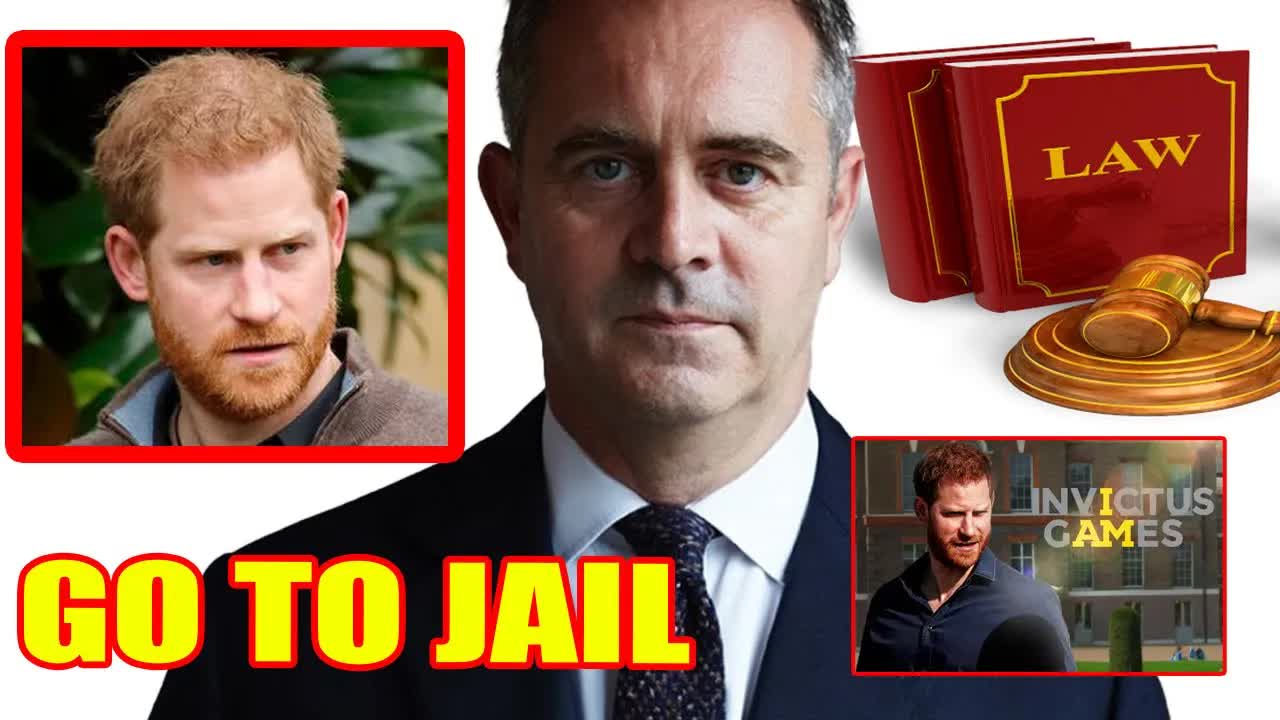Must Read
### Turmoil at the Invictus Games Foundation: Dominic Reid Steps Down Amid Controversy
The Invictus Games Foundation is making headlines again, but this time the spotlight isn't shining on the courageous athletes.
Instead, it's all about the recent resignation of Dominic Reid, the Foundation's CEO.
His departure has ignited a flurry of speculation, particularly following the backlash directed at Prince Harry during the Invictus Games' appearance at the ESPY Awards, where the organization was honored with the Pat Tillman Award for service.
Reid's exit has been framed as a “natural transition,” with the former CEO hinting that it was time for fresh leadership to steer the Foundation into its next decade.
However, the timing of his resignation, coupled with the absence of a designated successor, has raised eyebrows and fueled rumors of unrest within the organization.
This unusual gap in leadership has left many questioning the Foundation's stability and future trajectory.
In his farewell statement, Reid expressed his appreciation for the opportunity to lead the Foundation and reflected on the accomplishments achieved under his guidance.
Yet, the timing of his resignation—coming on the heels of the controversy surrounding the ESPY Awards—has led to rampant speculation about possible underlying tensions or issues within the Foundation.
Prince Harry publicly acknowledged Reid's contributions, praising him for transforming the Invictus Games from a mere concept into a globally recognized initiative that aids wounded, injured, and sick service members and veterans.
Interestingly, Harry's commendation did not extend to Prince William, Princess Catherine, or the UK Ministry of Defence, all of whom played pivotal roles in establishing the Games.
This omission only adds fuel to the ongoing controversies within the Royal Family.
The absence of an immediate successor is particularly concerning given the significance of the Invictus Games.
Leadership transitions are typically anticipated to ensure smooth sailing, and the delay in appointing a new CEO raises questions about the organization's readiness and potential ramifications for its future operations.
The Invictus Games has faced increasing scrutiny, especially following the backlash from the ESPY Awards.
Critics have voiced their concerns that the ceremony shifted focus from the veterans it aims to support towards Prince Harry and Meghan Markle.
This criticism has been amplified by reports indicating that some members of the Invictus Games Committee for the upcoming Winter Edition in Vancouver and Whistler are hesitant to involve the couple due to fears of diverting attention away from the veterans.
Recent backlash appears to have played a significant role in Reid's decision to resign.
The negative public perception and challenges in managing the Foundation's reputation may have weighed heavily on his shoulders.
Furthermore, the organization has come under fire for its financial management practices, with reports revealing substantial funding—around £27 million—from government sources.
Critics argue that this funding allocation seems inappropriate, especially considering Birmingham's dire financial situation.
The city is grappling with a staggering £300 million budget shortfall, which has resulted in a 21% increase in council tax and cuts to essential services.
This financial strain has sparked public outrage, with many accusing the City Council of misallocating funds by prioritizing the Invictus Games over vital infrastructure and social services.
The Invictus Games operates through various branches, including Invictus Canada and Invictus Birmingham, each with its own budget.
This structure has raised alarms about financial transparency and oversight, especially amid reports of budget overruns.
Local residents have expressed their frustration over what they perceive as a prioritization of the Games at the expense of essential community services.
Adding to the skepticism is the revelation that the Invictus Games is now largely functioning as a private entity rather than being directly linked to the UK military or the royal family.
This shift has further fueled doubts about the legitimacy and transparency of the funding processes involved in supporting the Games.




















